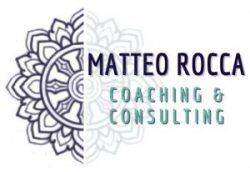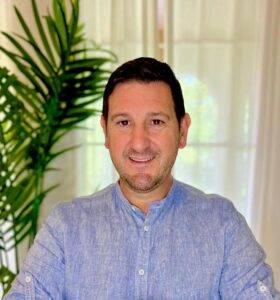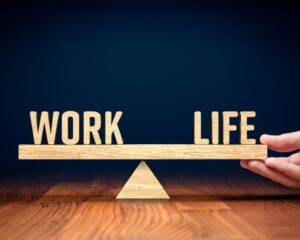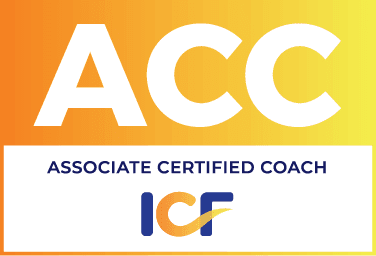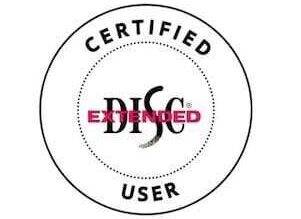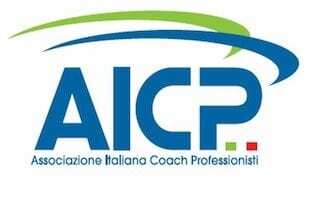COACHING GLOSSARY
” The secret to moving forward is to start ”
Sally Berger
REPORTS & STATS
Research, studies and statistics on Coaching
WHAT COACHING IS NOT
The difference between Coaching and other disciplines
COACHING GLOSSARY
Used terms, words and definitions
COACHING FAQs
Questions and answers to clarify ideas
HABIT
It is a term that derives from the Latin “habitudo, habitus”, physical or moral structure, which indicates the disposition or aptitude acquired through repeated experience. In Coaching, it is a behavior repeated over time , generated by unnatural learning methods.
In some cases they can become interferences, obstacles to the development of potential and excellent performance; they can be changed through the use of specific techniques or by enhancing and listening to experience, favoring the natural learning process.
SKILLS ANALYSIS
The skills analysis is a methodological process managed by specialized personnel, generally a counselor, aimed at identifying (through individualized interviews or group meetings and supported by various tools) the basic, technical-professional and transversal skills that the user has acquired through his previous training or work experience. The counselor can also be an expert within a working context.
Through a subsequent comparison between the skills possessed and the skills required by the job identified for the internship, it will be possible to elaborate and define the training objectives of the internship project. In addition to an evaluation function, the analysis of skills can also perform an orientation function of accompanying the choice of the personalized path that best suits the user’s expectations and characteristics.
ACTIVE LISTENING
it is the ability to voluntarily listen with a high degree of attention and participation. It differs from listening commonly understood as simply receiving information. Listening is an act, a voluntary behavior that is often confused with other activities such as hearing, feeling or observing.
It assumes total concentration and mental, inner, physical and emotional attention on what the other is communicating to us, in order to tune in with our interlocutor and grasp any type of message.
Active listening implies suspending judgment on oneself and on the other, accepting the uniqueness of the interlocutor.
ASSESSMENT
It derives from the English to assess, which means to evaluate, to estimate the value. It is a methodology that aims to evaluate the skills and/or potential of a person in the company.
ATTITUDE
Predisposition of a person, influenced by numerous factors (beliefs, social class, environment, past experiences, etc.), in adopting certain behaviors in the face of the stimuli it receives.
BUSINESS COACHING
Coaching process that is implemented in a corporate context and planned to accompany people and organizations towards the desired future and in achieving professional goals.
It includes an individual Coaching activity carried out with reference company figures (managers, leaders, etc.) and team Coaching activities involving the group, in order to achieve common objectives. Business Coaching
CHANGE
It consists of a modification of a situation or an internal, mental or physical state. Changing means opening up to new possibilities, embracing new scenarios, considering new opportunities and points of view. Changing means being willing to embrace the new, the unknown.
COACH
It is the professional who exercises the aforementioned techniques to help other people achieve their goals and best results . Below in our Mental Coaching glossary you will find the difference between the coach and other apparently similar figures. Find out who in my opinion the Coach with a capital “C” is
COACHEE
The one who turns to a Coach.
ONLINE COACHING IS EFFECTIVE AND CONVENIENT
To avoid any form of stress, I work in Online Coaching sessions , in videoconferencing, they guarantee the exact same results and greater comfort !
The only condition is that the quality of your connectivity, previously tested, is optimal.
COMFORT'
- it’s simple to entertain sessions wherever you are (at work, at home, in a hotel, abroad, on a train, plane, car, etc.);
- if you travel often, it guarantees continuity and regularity on the route;
- you avoid having to prepare the setting, welcome and register the guest (office, room, etc.)
- it is easy to use (TV, PC, mobile phone, tablet);
- you don’t have to move, you save time and money on transfers
- it is much more reserved, practical, comfortable and anti-stress;
- avoiding “lost” times, it offers a wider time slot.
BENEFITS
- if you are in a comfortable place you feel more at ease and the session is more effective;
- it’s more convenient: I save time so the price is lower for you;
- it is faster, it adapts to the needs of the agenda (early morning, in the evening, if there is a time zone, on weekends, etc.);
- it saves time and costs for travel and transfers.
- you often use your own PC or Notebook and you can take notes more easily;
- you can choose coaches who reside throughout Italy.
COMPETENCE
Inherent individual, integral and enduring characteristic of an individual’s personality, which can help predict behavior in a wide range of situations. It is causally linked to a performance in carrying out a task, in managing a specific position in an organization or in a contingent situation, which is measured on the basis of a pre-established criterion.
Particularly important are the individual intrinsic characteristics, which contribute to the formation and manifestation of competence: motivation, personal trait, self-image, specific knowledge, skills are intrinsic characteristics.
EFFECTIVE COMMUNICATION
This is defined as the exchange of messages whose formulation takes into account the factors that can influence the decoding and overall perception, so that the perception of the message by the recipient is the desired one.
DYSFUNCTIONAL BELIEF
Cognitive representation based on a rooted thought, of a negative and limiting nature, which is structured in a permanent belief. It rests on pillars that confirm its content, including experiences, third-party opinions, facts and reasoning that characterize the experience (past or present) of the person. It constitutes an obstacle to the achievement of the objective and for this reason it is defined as “dysfunctional”. Life Coaching .
CO-DESIGN
This is defined as the exchange of messages whose formulation takes into account the factors that can influence the decoding and overall perception, so that the perception of the message by the recipient is the desired one. For the enterprise
CORPORATE COACHING
Organizational coaching intervenes in an organization to start a process of change/development towards defined objectives, developing the company’s potential . Organizational coaching primarily leverages leadership development, combining internal well-being and customer satisfaction to produce the desired business outcomes.
In organizational coaching we can see the coexistence of training, training and performance development courses aimed at individuals, groups (teams) and the leader. Counseling Counseling is an activity of professional, scholastic or social orientation and promotion. It differs from the coaching activity that helps professionals, sportsmen and other figures interested in personal improvement in achieving better goals and results. For the enterprise
BELIEFS
Etymologically, they are mental, interior attitudes assumed by those who recognize a proposition or a notion as true. They are ideas, internal representations that the individual forms in his mind through judgment and which are continually repeated until a system of beliefs is built. Often the actions of an individual are affected by limiting beliefs, arising from generalizations such as “I’m not good, I’m not capable” typical of the sanctioning mind (the Self1 mentioned by Tim Gallwey).
Having a good Inner Game also translates into reworking limiting beliefs and beliefs in order to achieve high performance. In fact, beliefs can generate habits and automatisms, negative behavior patterns (the so-called grooves) which acquire, in the Inner Game formula, the function of interfering with the development of one’s potential and therefore with success (performance).
The reworking of limiting beliefs and convictions is determined by two specific actions: calming the Self, our judging mind, and trusting the Self, the part of us that values our natural abilities.
EMPATHY
Ability to understand what a person is feeling, identifying their emotional state and refraining from any criticism or judgment of merit. The Greek word “εμπαθεια” (empathy, en- “inside” and pathos “suffering or feeling”) was used to indicate the emotional relationship that bound the author-singer to his audience.
ETHICS
From the Greek ethos (character, behavior, custom, habit) is the branch of philosophy that studies the objective and rational foundations that allow human behavior to be distinguished between good, just or morally licit behaviors, and those considered bad or morally inappropriate. Discover my code of ethics
EMPOWERMENT
Empowerment indicates a complex process that the individual carries out with the support of experts, towards professional development and growth, in autonomy, respecting the subjectivity and resources possessed by individuals. This process, which sees the subject as the primary protagonist and proponent of the construction and choice of viable possibilities, develops through the acquisition of self-development strategies.
The Empowerment process goes through a few stages:
- identification of a new need or desire,
- imaginative exercise of satisfied need/desire,
- detailed elaboration of the new situation in which the need/desire is satisfied,
- identification of the necessary resources, both internal and external, to implement the situation,
- experimentation of initiatives aimed at procuring resources and/or achieving the desired situation, redefinition of needs and desires, of new self-thinking possibilities, of new experiments
Empowerment means the process of increasing “power”, however here we are not referring to the interpersonal and social (of someone “over” someone else) but to the power within the subject (the power “to” do/choose, etc…).
Pathways specifically oriented and aimed at leadership, where the focus is the action of the leader in his specific context, according to an alignment between personal, role, team and organizational objectives. Executive Coaching .
FEEDBACK
Feedback, or retroaction, is the ability of dynamic systems to take into account the results of the system to modify the characteristics of the system itself: in the case of organizational communication, the feedback has the purpose of confirming, reinforcing or modifying an attitude or behavior of the interlocutor to improve the overall quality of communication and performance of the individual or group in which he is inserted.
FLOW
The state of Flow is represented by the optimal, all-encompassing experience in which an individual fully exercises their potential and expresses their talent. It is a state characterized by: clear and achievable objectives and action plans; concentration in the present; pleasure to act; impaired sense of time ; skill and load in balance; have the gesture, the activity under control; naturalness of actions; use of potential.
If we imagined the Flow represented on a graph made up of abscissa and ordinate, where on the abscissa we place the skills and on the ordinate the load, we would see that in case of high skill and low load we would find ourselves below the Flow and therefore in boredom, while at low skill and high load we would be above the flow line and therefore in stress.
FOLLOW UP
They are short refresher sessions between the Mental Coach and the client that take place between one main session and another. In fact, some objectives require constant updates, even once a day. What are the main technical results of coaching activities? Here are the basic terms of the Mental Coaching glossary
TRAINING
Specific interventions more or less prolonged over time , delivered in the classroom, in e-learning or coaching mode, aimed at developing skills and/or abilities that favor the emergence of desired behaviors and related skills.
E-learning training, by definition delivered online, represents the most advanced form of distance learning (FAD): click here if you want to find out more.
GOALMAP
is the graphical representation of the Goal Setting process for defining objectives. It is a map in which the end, result and performance objectives are reported, together with the action plan, obstacles and allies. In the Coaching relationship, it allows the Client to organize the goal building phase in a schematic way and can be integrated throughout the process.
GOAL SETTING
it is a specific goal planning technique that is developed on the basis of personalized milestones. The technique makes it possible to adapt the action plan to one’s own needs, pace and commitments.
INTAKES
It is the first meeting between a Mental Coach and the future client, it can take place physically or by telephone. During this the two parties get to know each other to decide if they will work together. The meetings to be performed, their duration and rates will be established. It’s free and takes about 30 minutes.
EMOTIONAL INTELLIGENCE
Ability to perceive and recognize one’s own and others’ emotions, consciously using one’s emotions to guide one’s thoughts and actions.
JOB PROFILES
The job profile is a tool that the company uses to define responsibilities and activities that the role envisages, place the same in the organizational context and processes, identify the range of studies and professional experiences compatible with the position, identify the minimum characteristics needed in terms of specific knowledge and skills (threshold values). Discover career coaching
LEADERSHIP
Competence manifested by a person who guides people, groups or organizations with a sense of responsibility and supports their action towards the achievement of specific objectives, consistent with those of the organization.
LIFE COACHING
Coaching and development courses for personal potential and personal well-being in relation to the achievement of personal and/or professional goals. Life coaching
MARKETING
Marketing is the planning and execution process of conceiving, pricing, promoting and distributing ideas, goods and services in order to create exchanges that achieve the objectives of individuals and organizations.
Marketing management can be defined as the art and science of selecting markets and acquiring, retaining and growing customers by creating, delivering and communicating value to the customer. (American Marketing Association). Science and art of acquiring, maintaining and developing a clientele that ensures profit. (Philip Kotler)
MENTAL COACH
It is a type of personalized mental training, aimed at making a change in the individual who wants to achieve a sporting, professional and/or personal goal, through the use of techniques to make the most of manifest or hidden potential. Something about me
MENTORING
It is a support activity for professional development that acts within a working reality, while the coach is a professional who acts from the outside.
MODEL OF THE WORLD
The way in which an individual represents reality and lived experiences to himself. It is the model through which experiences are “recorded” on a sensory and cognitive level, generating a system of internal representation on the basis of which beliefs and expectations about oneself, others and the world are created.
MOTIVATION
Inner drives generated by needs that lead a person to act for the pursuit of certain objectives rather than others, to make certain choices instead of others. It is characterized by one or more goals or objectives, by the effort made to achieve them and by its persistence over time . It is an essential component of competence.
OBJECTIVE
Coaching identifies one of the phases of the process. A well-constructed goal has must-have characteristics including specificity, measurability, actionability, realism, and timing. Furthermore, objectives can be classified into means and end objectives, process objectives, results objectives and performance objectives. The Coach’s task is to support the Client in correctly defining the objectives and monitor what the Client has done with reference to them.
PERFORMANCE (PERFORMANCE)
Performance, in performance literature, is a behavior aimed at obtaining results that the organization sets itself, the achievement of which may also depend on other subjects and variables. Core self-evaluations contribute substantially to the quality of performance, a durable personality trait that has four dimensions:
- the belief that they can control or at least significantly influence events that concern them (locus of control);
- the tendency to react negatively to events, manifesting anxiety, stress, emotional instability and need for help (neuroticism);
- the belief that one can successfully manage a variety of different situations (self-efficacy); self-esteem, i.e. the awareness of one’s own worth (self-esteem).
PERSONALITY
The term personality refers to the set of psychic characteristics and behavioral modalities that define the nucleus of individual differences, in the multiplicity of contexts in which human conduct develops.
Psychologist Hans Eysenck, a student of the structure of personality, stated that “personality is the more or less stable and durable organization of a person’s character, temperament, intellect and physique” (The structure of Human Personality). The oldest precursor of the study of personality was Hippocrates who defined four personal types, based on the basic mood present in his body: melancholy, choleric, phlegmatic, sanguine.
NLP
Neuro-linguistic programming is a set of techniques used by numerous Mental Coaches and provides a series of tools to improve communication and one’s emotional state.
PROBLEM SOLVING
In Italian, problem solving is a critical thinking activity (see) that an organism or an artificial intelligence device implements to provide a solution to a difficulty or problem. Problem solving is a part of the whole problem solving process, which also includes the processes of problem finding and problem shaping.
RESILIENCE
In its general sense, the term indicates the ability of a system to overcome a change, even of a traumatic nature, while maintaining its integrity. In psychology, resilience represents the ability to face even traumatic events and to give one’s life a new organization, consistent with the new scenario; resilient people are able to face adverse situations, overcome setbacks and pursue ambitious goals with enthusiasm.
RESPONSIBILITY
From the Latin “responsus” (see respondere – it. to respond), it means “to undertake to answer for one’s actions and consequent reactions”. The concept proposed by Aristotle which associates responsibility with the value of freedom of choice (without conditioning of any kind) is interesting and thick. Concept that connects us to the importance of Awareness in the act of choice.
SESSION
The meeting that takes place between a Mental Coach and a Coachee.
REPRESENTATIONAL SYSTEMS
visual, auditory and kinesthetic perceptual modalities, which correspond to the modalities with which every human being represents reality to himself and creates his own subjective experience. They refer to the use of the senses: sight, hearing, touch, taste, smell and are inserted in the acronym VAKOG, where the individual capital letters indicate each of the five senses.
SKILL (CAPACITY AND ABILITY)
Representative of a person’s probability of performing an activity satisfactorily, or successfully completing a task of a prevalently intellectual, managerial or competitive nature: it is typical of those who manage complex tasks in an organized and purposeful way, using the experience to adapt to specific circumstances.
Skill, mainly referring to doing, is representative of the probability of performing or completing a mainly practical or manual task: it is the dexterity acquired over time with practice, exercise or experience.
SPORTS COACHING
Short courses, focused on a well-defined temporal objective, to be activated when specific training is required with respect to peak performance, such as a public event in which public speaking skills are required, an exam to pass, a project to conclude or manage , an important report to prepare, a selection to participate in.
STRATEGY
The strategy describes a medium or long-term action plan used to set up and subsequently coordinate actions aimed at achieving a specific goal or objective. It is used in all cases in which a series of separate actions/operations are required to achieve the objective, the choice of which is not unique and whose outcome is uncertain.
Strategy contrasts with tactics, which have the aim of planning the single action in the best possible way and must take into account all its practical and contingent constraints; the tactic refers to actions aimed at achieving a short-term goal and generally has a small scope of action.
STRESS
It represents the psychological, nervous or physical tension that occurs in the person, as a response to negative stimuli from the environment, also called stressors or stress agents.
The process of adaptation to stress can give rise to three distinct phases: the alarm phase, during which defensive energies are mobilized (increase in blood sugar, acceleration of the heart rate, increase in pulmonary ventilation, increase in muscle tone, increase blood pressure, decreased salivary secretion, etc.); the resistance phase, in which the body tries to adapt to the situation and the effort to find the pre-existing balance is consistent; the exhaustion phase, which is reached when the action of stressors is persistent or intense; in this case the ability to adapt is lost and the body is no longer able to defend itself effectively from the attack, favoring the appearance of diseases such as arterial hypertension and diabetes. Stress Management
SUCCESS
In the Mental Coaching glossary “success” means the result obtained after the action. Nothing to do with success understood as money and fame. To be a successful person it is enough to achieve your goals, regardless of what they are. In a Mental Coaching glossary, the definition of activities that differ from mental coaching in some important aspects cannot be missing.
TALENT
Talent synthesizes the concepts of personal trait and skill, i.e. individual characteristics enhanced by practice, exercise or experience. The personal trait takes into account the psychological trait and physical characteristics. According to Gordon Willard Allport, psychological traits are neuropsychic systems similar to attitudes but possessing a more general character because they do not refer to specific objects: they do not imply “values”, that is, they are independent of the acceptance or rejection of objects or circumstances. The traits of an individual are unique, unrepeatable, even if some resemble those found in other individuals to a greater extent and can therefore be considered “general”: the general traits can therefore be compared and evaluated in quantitative terms. Career Coaching
TEAM COACHING
Team coaching is part of organizational coaching. We can have: 1. organizational team coaching: it is a team coaching that falls under corporate coaching; 2. pure team coaching : the team makes up the entire organization. Team coaching is aimed at a team, a group of around ten people held together by a common mission and goals; it serves to coach him in the pursuit of his specific group goals. Team Coaching
TEEN COACHING
Courses aimed at teenagers, aimed at identifying and enhancing their potential, in order to train technical skills and LifeSkills. Life coaching
Specific interventions, more or less prolonged, over time aimed at increasing or acquiring the specific knowledge indispensable for managing a role or position in the organisation. Specific interventions more or less prolonged over time , delivered in the classroom, in e-learning or coaching mode, aimed at developing skills and/or abilities that favor the emergence of desired behaviors and related skills.
VALUE (SOCIAL SPHERE)
A value is a conception of the desirable, explicit or implicit, distinctive of an individual or characteristic of a group, which influences action by selecting among available modes, means and ends. Values vary historically and geographically because they do not belong to the absolute world of ideas, but are interconnected with social reality.
ASSESSMENT OF INDIVIDUAL POTENTIAL
The assessment of potential refers to the assessment of the skills that the person could express in a role other than the one currently held or in a similar role with higher responsibilities. In assessing potential, the temporal dimension is fundamental: the assessment can, in fact, both refer to the present and to a future time , compatible with the development of skills pertaining to the role that the person is potentially called to fill.
VISION
It summarizes the set of perceptions that the organization intends to convey, now and in the future, to the people who work for it and to the market. It represents one of the most complex and difficult concepts to “digest”, and which guides both organizational and corporate communication issues. Startup Coaching
VIEW
It is a technique used by Mental Coaches to help create motivational mental images in the mind of the coachee or to achieve relaxation and well-being. It exploits the principle that the mind often fails to distinguish images of events that actually happened and an event that was only imagined.
WORKSHOPS
Thematic group meeting to address a specific issue, specialization course, study seminar
COMFORT ZONE
It is a rewarding psychological state in which a person feels at ease, comfortable, in familiar surroundings and in control of the situation. In this state, behaviors are limited and consequently performance is lowered
REPORTS & STATS
Research, studies and statistics on Coaching
WHAT COACHING IS NOT
The difference between Coaching and other disciplines
COACHING FAQs
Questions and answers to clarify ideas
COACHING PATHS
TOOLS
During the courses, in the initial phase , accredited diagnostic tools are used in the field of communication, professional growth and business organization. This phase facilitates the coach’s task in identifying immediately and precisely the client’s preferences in the way of making decisions, working and managing difficulties.
In addition to the above, the courses can make use of various tools:
- individual meetings (max. 120 min.), in person or by videoconference, 1-3 weeks apart;
- telephone sessions (max 60 min) for monitoring the action plan (optional);
- training cards or e-learning courses developed by the coach and functional to accelerate learning on specific topics (attended independently, with assistance from the coach)
- individual work by the coachee on articles, books, films, etc.;
- exercises and simulations useful for overcoming emerging difficulties or for strengthening already satisfactory performancesd
CONFIDENTIALITY
In coaching pathways there are conversations in which complex, often private, personal and professional concerns are raised. A key part of this process involves trust and absolute certainty that confidentiality will be maintained to the highest standard.
In this regard, as a Coach associated with the ICF and AICP, I undertake to follow their respective codes of ethics. You can consult them at the links below:
You can rest assured that our private conversations will be protected, in accordance with rigorous personal and professional standards. This will allow you to be free to communicate any thoughts to me in order to fully commit and work on improving your stress management, to bring about the changes you desire.
